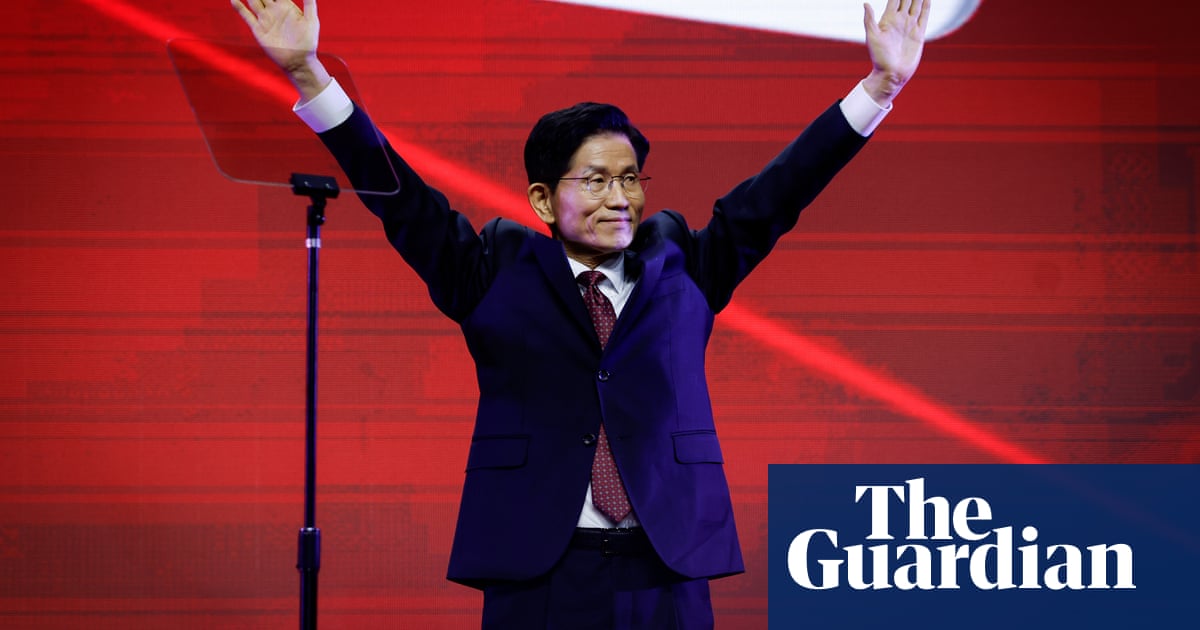South Korea’s conservative People Power party has picked former labour minister Kim Moon-soo as its candidate for the 3 June presidential election, which was called afterthe removal of Yoon Suk Yeolover his failed attempt to impose martial law.
Kim will face the liberal Democratic party’s candidate, Lee Jae-myung, who has led each of the declared conservative candidates by large double-digit margins in polls.
Kim, 73, who was a labour activist in his university days but later turned hardline conservative, served as labour minister under Yoon and has pledged to implement business-friendly policies if elected.
He laid out a sweeping conservative vision for the country in his acceptance speech, vowing to take a hard line against North Korea and implement incentives for businesses and for innovation and science.
He also pledged to strengthen policies to support young workers and the underprivileged, recounting his experiences as a labour and democracy activist, for which he was jailed and expelled from school.
“I have never abandoned the weakest among us in the lowest of places,” he said.
But he added the party must prove that it was starting over to win voters, after the public backlash over Yoon’s martial law attempt.
The conservatives trail the liberals in public support, although they have narrowed the gap since the initial weeks after the martial law declaration in early December.
Kim remains one of the few in the party who says Yoon’s removal was not warranted.
Lee, the liberal candidate, remains the clear frontrunner, with nearly 50% of public support, according to a survey by the pollster Realmeter released on Monday, while Kim has 13% support.
But the race was rocked this week by a court ruling that cast doubt on Lee’s eligibility to run for the presidency, overturning a lower court acquittal that cleared him of breaching election law in a previous race. The supreme court sent the case back to an appeals court, and it was not clear when a new ruling would come.
On Friday, Yoon’s former prime minister, Han Duck-soo, announced his entry into the presidential race, hoping to leverage his higher profile. Han, while not a member of the conservative party, has been mentioned as a potential partner of the party to join forces against the liberals in the presidential race.
The election was triggered bythe removal of Yoon from the presidency in Aprilby the constitutional court, which ruled he committed a grave violation of his duties by declaring martial law on 3 December with no justifiable grounds.
